vegetable garden near automotive paint building?
HU-199722256
last year
Featured Answer
Sort by:Oldest
Comments (33)
daninthedirt (USDA 9a, HZ9, CentTX, Sunset z30, Cfa)
last yearlast modified: last yearHU-199722256 thanked daninthedirt (USDA 9a, HZ9, CentTX, Sunset z30, Cfa)HU-199722256
last yearRelated Professionals
Forest Park Landscape Architects & Landscape Designers · Essex Landscape Contractors · Farmington Landscape Contractors · Middleton Landscape Contractors · Berkeley Driveway Installation & Maintenance · Galveston Painters · Manville Painters · Lakeside Cabinets & Cabinetry · Lakeway Flooring Contractors · Temecula Flooring Contractors · Worcester Flooring Contractors · Pembroke Architects & Building Designers · Fort Pierce General Contractors · Livermore General Contractors · Marinette General Contractorsdaninthedirt (USDA 9a, HZ9, CentTX, Sunset z30, Cfa)
last yearlast modified: last yearfloral_uk z.8/9 SW UK
last yearHU-199722256
last yearcat_ky
last yearHU-199722256
last yearvgkg Z-7 Va
last yeardaninthedirt (USDA 9a, HZ9, CentTX, Sunset z30, Cfa)
last yearlast modified: last yearStax
last yearlast modified: last yearworthy
last yearbeesneeds
last yeardaninthedirt (USDA 9a, HZ9, CentTX, Sunset z30, Cfa)
last yearlast modified: last yearJohn D Zn6a PIT Pa
last yeardaninthedirt (USDA 9a, HZ9, CentTX, Sunset z30, Cfa)
last yearlast modified: last yearCA Kate z9
last yearlast modified: last yeardaninthedirt (USDA 9a, HZ9, CentTX, Sunset z30, Cfa)
last yearlast modified: last yearbry911
last yearlast modified: last yearJennifer Hogan
last yeardaninthedirt (USDA 9a, HZ9, CentTX, Sunset z30, Cfa)
last yearlast modified: last yeardaninthedirt (USDA 9a, HZ9, CentTX, Sunset z30, Cfa)
last yearlast modified: last yearHU-199722256 thanked daninthedirt (USDA 9a, HZ9, CentTX, Sunset z30, Cfa)beesneeds
last yearHU-199722256
last yearbeesneeds
last yearHU-199722256
last yeardaninthedirt (USDA 9a, HZ9, CentTX, Sunset z30, Cfa)
last yearlast modified: last yearJennifer Hogan
last yearbeesneeds
last yearHU-199722256
last year
Related Stories
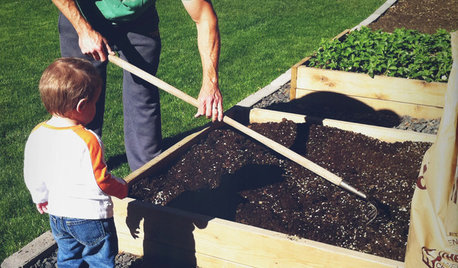
GARDENING AND LANDSCAPINGBuild a Raised Bed to Elevate Your Garden
A bounty of homegrown vegetables is easier than you think with a DIY raised garden bed to house just the right mix of soils
Full Story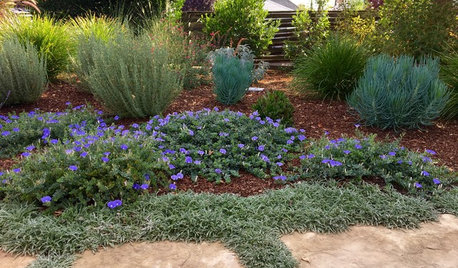
GARDENING GUIDESWhat to Do This Fall to Build Healthy Garden Soil
Take advantage of the cool season to improve soil texture and replenish nutrients
Full Story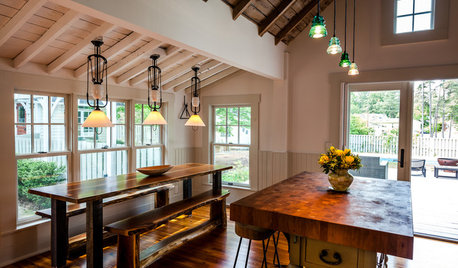
KITCHEN DESIGNKitchen of the Week: Rustic Space Opens to Herb and Vegetable Gardens
Well-chosen recycled and repurposed features create a North Carolina cottage kitchen with a distinctive look and personality
Full Story
EDIBLE GARDENSGarden BFFs? Why Your Vegetables Are Begging for Companion Plants
Foster friendships among plants for protection from pests, pollination support and color camaraderie
Full Story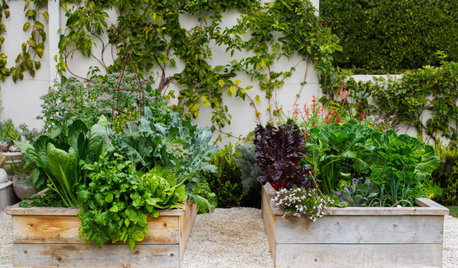
MOST POPULARHow to Start a Cool-Season Vegetable Garden
Late summer and late winter are good times to plan and plant cool-season crops like salad greens, spinach, beets, carrots and peas
Full Story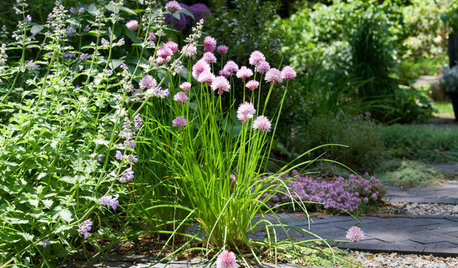
EDIBLE GARDENS8 Surefire Vegetables and Herbs for Beginning Gardeners
Learn the edible plants that are popular and easy to grow in a backyard or container garden
Full Story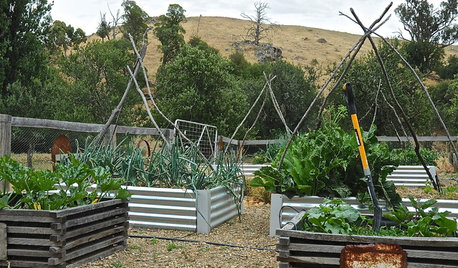
FARM YOUR YARD9 Ways to Change Up Your Vegetable Garden for the Coming Season
Try something new for edible plantings that are more productive than ever
Full Story
HOUZZ TOURSHouzz Tour: Family Builds Off the Grid Near the Cascade Mountains
Homeowners carefully construct a weekend home on 20 acres in remote northeast Washington
Full Story
Guest Picks: Herb Gardens for Small Kitchens and Gardens
Up the wall, easily portable or beautifully decorative, these solutions help even the smallest kitchens and balconies get growing
Full Story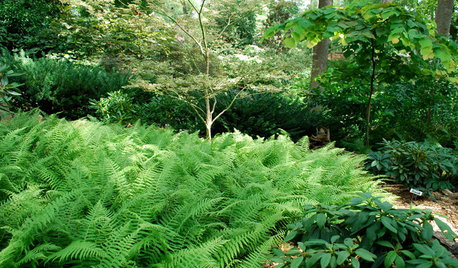
PLANTING IDEASFerns: A Shade Gardener’s Best Friend
Bring rich texture and contrast to a dark woodland landscape with wonderfully diverse ferns
Full StoryMore Discussions


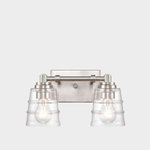
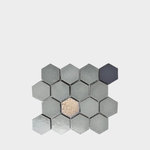




3onthetree